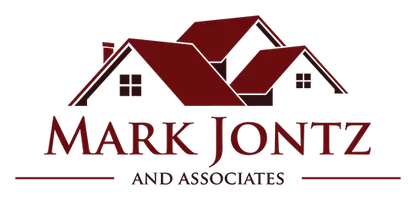Selling Your Home And Buying Again In A Hot Sellers Market
Recently I was talking to a couple that wanted to sell their townhome in Lower Mission and upgrade into a single family home with more space for their growing family. For the sake of privacy lets just call them "the Jacksons". But there was one problem - a hot sellers market. Homes are selling almost instantly with multiple offers and the Jacksons were worried that they would sell their home and not have another home to move into. This was a HUGE concern for a family with two small children. They were not in a position that they could risk not having a place to stay for a while, and with two kids it made it harder to rely on finding a suitable property in time. This offers the very real question that many homeowners are faced with at this time..
How Can I Sell My Home And Not Be Homeless?
The goal for a lot of people right now is to either upgrade or downgrade their living situation but they are worried they might not find something else to move into. Ultimately they want to sell a home and buy another one in a hot sellers market. In a balanced market (meaning the real esate market does not favour either buyers or sellers more than the other) it is relatively easy because there is a healthy supply of homes to match the demand. But in a sellers market it is a little more difficult. Sure, it's easy to sell your home right now. You'll probably have multiple buyers making offers on your property. But then you have to turn around and buy a home in the same market where you will then be competing with other buyers. Luckily there are a few solutions to this problem - a few tips or "real estate hacks" if you will. We will share a few of these tips below.
Option 1: Roll The DiceThis option is quite often the only option most sellers think they have. That is, to accept an offer on their home and then start searching for another property to make an offer on and hope it gets accepted. If they don't find another property in time they can rent for a while until they find another property. This can work for some people if they are more flexible and they don't mind renting for a while. It might also take a bit of pressure off knowing that you have a "plan B" ready to go in case you don't line up the two sales perfectly and you feel less pressed for time and less stress and anxiety over finding a new place.
Pros: Making a cleaner offer without a "subject to sell" on your own property gives you an upper edge with competing offers and a higher chance that it will get accepted, maybe even at a lower price than another offer that has a "subject to sell" because the seller has more confidence that you will actually close the deal. You'll also have less pressure to buy before a certain deadline giving you more time to think clearly.
Cons: You may not find a home before your house sells and have to rent for a while.
Option 2: Add A Condition To Find Another PropertyRemember, everything is negotiable in a purchase and sale contract. In a sellers market you are able to ask for a lot more from buyers. One condition that a lot of sellers are opting to counter an offer with is a condition that they find a suitable property to purchase before the closing date. Most buyers are eager to have their offer accepted so this condition is quite often accepted. We often recommend waiting for the buyer to remove all the conditons on their offer first before you make any offers on another property. That way the sale is considered a "firm deal" and the buyer cannot back out without legal implications. The home is basically sold and just waiting for the possession date. You would then make an offer on another property and still have a "subject to finalizing" clause in your offer but explain to the property owner that you have an accepted offer on your home and all conditions have been met. This gives the property owner confidence that you will actually close the deal and you will also have specific dates for when to take possession.
Pros: If you don't find a suitable property then you simply don't have to sell your house. Having said that, you are still liable to put a resonable effort into finding a suitable property.
Cons: You will still need a "subject to finalizing" clause in your offer and while it's almost a guaratee that you'll meet that condition a seller may still opt to accept a different offer without the clause because "hey, anything can happen!"
Option 3: Rent Back The PropertyThe rental market is just as challenging as the real estate market right now so even finding a suitable rental can be tough. Given that most buyers are struggling to find a property to purchase, some of them might be willing to rent your own property back to you after the closing date so you can have more time to find another suitable property to purchase. This option relieves some of the pressure to find a home by a specific deadline, especially when that deadline is coming up soon and you still haven't found anything.
Pros: You'll have more time to find another home to purchase and less stress in finding a place by a certain deadline.
Cons: You still may not find a home to buy and have to figure out your living arrangements after that. Most buyers are not going to want to rent the home out for too long as they are just as eager to move into their new home as you are.
Option 4: Have A Long Closing DateA purchaser may not be willing to rent the property back to you because then we are getting into tenancy laws. And what happens if at the end of the rental you still haven't found anything and decided you just aren't vacating your property? The buyer may decide not to get involved with a rental agreement so another similar option would be to just have a longer closing date. There's nothing that says you can't have a 3 month or longer closing/posession date. This would provide more time to search for another property and also to make backup plans in case you can't find anything. Of course, the buyer has to agree to it so this option needs to work for both parties.
Pros: It'll give you more time to find another home to purchase. A longer closing date gives you plenty of time to sort things out and less pressure to find something on short notice. Being in less of a time crunch means you'll have enough time to plan your move.
Cons: The purchaser may not want a long closing date so it could take some negotiating to get this to work. Also with longer closing dates you run the risk of the purchaser's (or your own) financial position changing and potential hiccups with financing.
The Right Way To Sell A House And Buy Another One
Buyers are a little more flexible these days when it comes to negotiating offers. Asking for extended closing dates or subject to finding another suitable property is not uncommon. In a balanced market buyers are not as willing to give you the option of finding another home or a longer closing date. But we are in a sellers market where you can ask for a lot more. Use this to your advantage. Many homeowners are thinking it's a tough market to buy in but they are forgetting how much leverage they have on the selling side. Use this to your advantage and you can easily sell your home without having to worry about where you are going to live. And if you don't find another place you can have the option of not selling your house - no harm, no foul. In the end there is no right or wrong way to sell a house and buy another one. Each situation is unique and it all boils down to what works for both the buyer and seller.
Government Raises The Stress Test To Help Cool The Real Estate Market
In October 2016 the federal government introduced a stress test which required borrowers to qualify for a rate higher than what they were actually paying. This was implimented to protect borrowers in the event that interest rates increased in the future so that they would still be able to afford the higher mortgage payments. Under the previous rules a borrower would need to qualify for 4.79 per cent. Starting June 1, 2021 the stress test requirement for uninsured mortgages has increased to 5.25 per cent.
What Caused The Increase Of The Stress Test?
An increase of buyers and lack of inventory has caused the price of homes to skyrocket in the last year, causing many buyers to overextend their budget and stretch their mortgage budgets to the max. This is almost never advisable, however in a market where we are seeing multiple offers on properties and homes selling for over list price it is hard for a purchaser to not want to extend their budget, especially when they found their dream home.
In an effort to help cool the market, the federal government has updated the mortgage stress test for uninsured mortgages (anyone paying less than 20% down) and increased the qualifying rate to 5.25 per cent. That means, if you qualified for $500,000 under the previous minimum qualifying rate of 4.79 per cent, that amount is reduced to $479,000 under the new qualifying rate. This does not mean you will be paying 5.25 per cent but you do have to qualify for it in order to be approved for a mortgage.
Who Will The Stress Test Affect Most?
In my opinion this stress test will mostly affect entry level borrowers and new home buyers trying to buy their first home, as a lot of the activity in the Okanagan is coming from sellers in other markets such as Vancouver and provinces like Ontario where they sold their home for a substantial amount over what they paid and came to Kelowna with cash offers or a substantial down payment. This will, however, protect the most vulnerable sector of the market in the event that they overextend their budget and then see interest rates increase to a point where they would need to sell their home in order to afford the cost of living.
The average price of a single family home in Kelowna has increased 10% so far in 2021 and has increased 40% over the last 12 months.

Mark Jontz
Phone:+1(250) 861-6002


